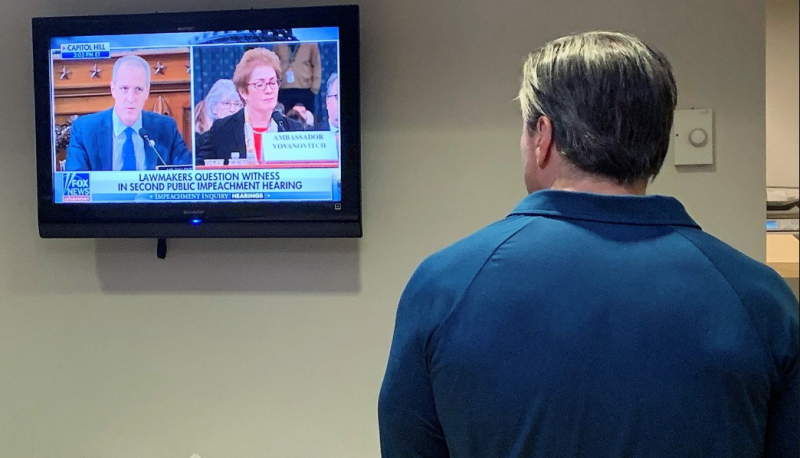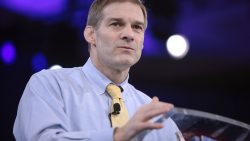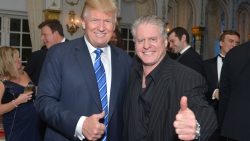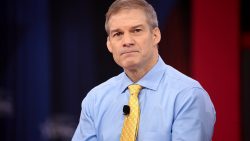On day two of the public impeachment hearings in the House of Representatives, Republicans appeared unsure of what to make of Marie Yovanovitch, the former U.S. ambassador to Ukraine who has served both Republican and Democratic administrations, which was further complicated by President Donald Trump’s tweet attacking her, delivered as she testified about feeling intimidated by his references to her in the read-out released by the White House of the president’s July 25 call with Ukraine’s President Volodymyr Zelensky. The response among right-wing activists and groups was likewise disjointed.
Some congressional Republicans like Devin Nunes, who questioned Yovanovitch, and Andy Biggs, who was among the Republicans who stormed the secure hearing room last month during closed hearings, claimed Yovanovitch’s testimony was irrelevant.
.@RepDevinNunes is exactly right: former Ambassador Yovanovitch should not be a witness at an impeachment hearing where she is NOT a material fact witness to any of the accusations that are being hurled at the President for this sham impeachment inquisition. pic.twitter.com/urg8AZN7M3
— Rep Andy Biggs (@RepAndyBiggsAZ) November 15, 2019
Nunes also suggested that Yovanovitch should be testifying in front of a human resources subcommittee and painted her as a disgruntled employee, an idea right-wingers picked up on social media.
Yovanovich embarrasses me as a US citizen and woman.
She has proven her incompetence today & why her firing was justified.
Although Trump needed no justification
Girl bye
— andrea kaye ?? (@andreakayeshow) November 15, 2019
The anti-choice organization Concerned Women for America attacked perceived sympathy for Yovanovitch and claimed it was sexist.
.@RepAdamSchiff's sexist playbook for sympathy for Yovanovitch has NOTHING to do with high crimes and misdemeanors. It's an insult to #women. Using sexism when convenient degrades women. But we’ve seen this playbook before… #DemsGotNothing #NoEvidence #ImpeachmentHearing pic.twitter.com/2InEOjzu6j
— CWA LAC (@CWforA) November 15, 2019
The conservative news outlet The Daily Caller focused on Adam Schiff’s enforcement of House rules, which prevented Rep. Elise Stefanik from questioning Yovanovitch until her allotted time.
CnN iS aN oBjEcTiVE nEwS oUtLeT pic.twitter.com/zpQ3hZpIwt
— Daily Caller (@DailyCaller) November 15, 2019
Adam Schiff's behavior toward Elise Stefanik is appalling
If a Republican did this the media and the Democrat Party would instantly accuse them of being sexist pic.twitter.com/MJsiqcnt3w
— Ryan Saavedra (@RealSaavedra) November 15, 2019
And others ignored Yovanovitch and continued to attack House Intelligence Committee Chair Adam Schiff for leading the investigation. Right-wing commentator and pastor Jesse Lee Peterson called Schiff a “beta male.” Peterson’s tweet was liked by the president’s adult son, Donald Trump Jr.
.@AdamSchiff is beta male! He runs phony #ImpeachmentHearings like an angry, controlling female—like his mamma! Such a coward! Schi** won’t let Republicans ask questions. If we had a real press, there would be outrage over this tyrannical Leftist & fake #Impeachment #StoptheCoup
— Jesse Lee Peterson (@JLPtalk) November 15, 2019
Judicial Watch’s Tom Fitton continued his “’Gossip Girl’ impeachment” line of attack, which he floated last week and on which he doubled down during the first day of public hearings. On that day, Republicans similarly suggested the testimonies of William B. Taylor Jr., acting U.S. ambassador to Ukraine, and George Kent, the deputy assistant secretary of state for European and Eurasian affairs, were based on hearsay.
Gossip Girl impeachment about nothing, new FBI Strzok-Page emails on Clinton cover-up; PLUS new lawsuit against international Deep State. My BIG @JudicialWatch Update coming up @Twitter, @Instagram, @Youtube, @Facebook (though it may be censored to protect the Schiff leaker!) pic.twitter.com/frO4AhXAaO
— Tom Fitton (@TomFitton) November 15, 2019








